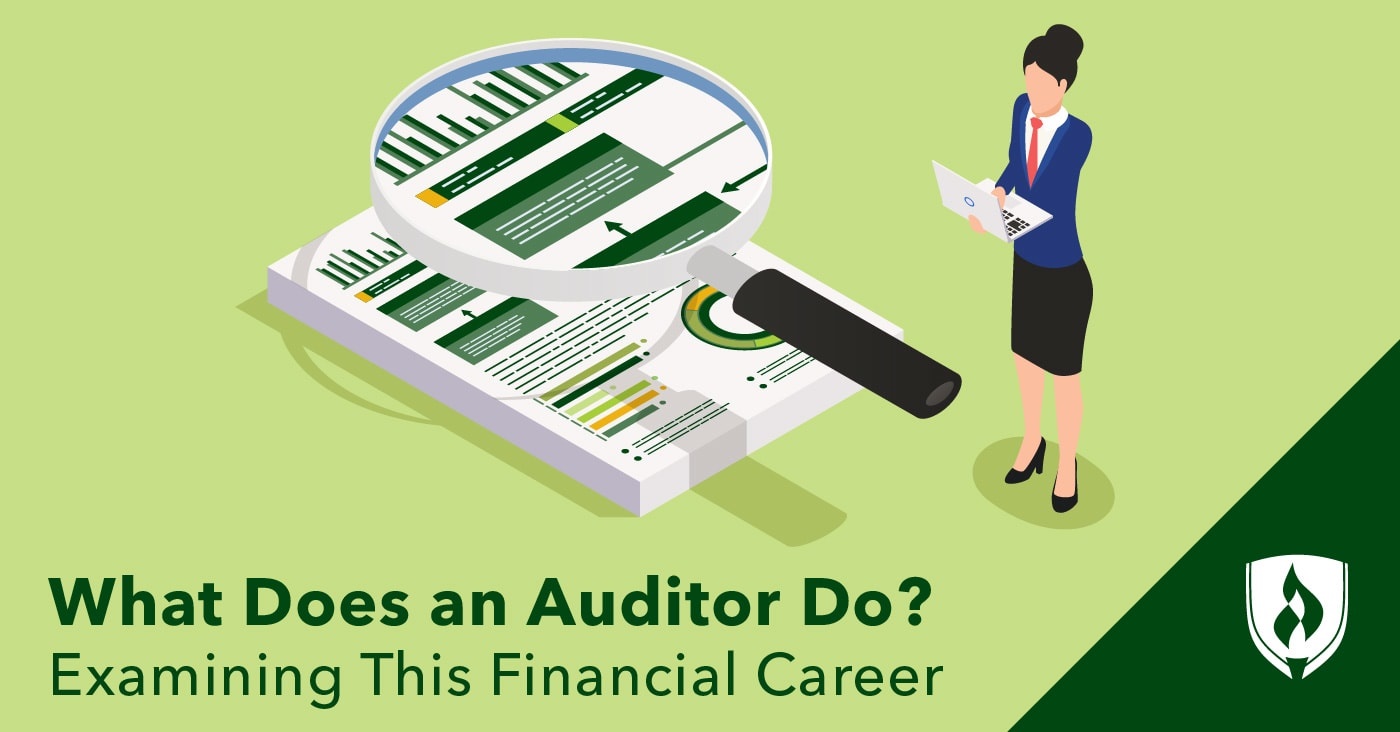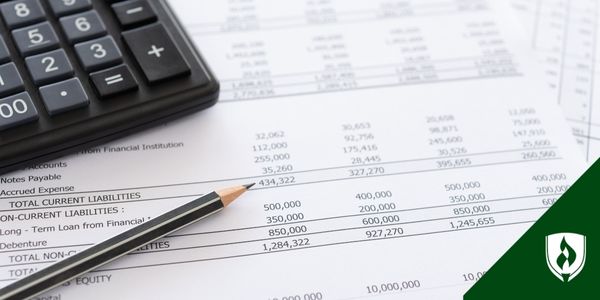
No one wants to wake up at the start of their workweek counting down the hours until they’re done with a lackluster job. While going to work can sometimes feel like a slog for people even in ideal circumstances, you know you have the potential to do more by applying your talents and interests—and ideally, you’ll make a good living doing so.
If you’re drawn to mathematical reasoning, organization and don’t mind digging into documentation to get to the bottom of a problem, a career in accounting seems to be a natural fit. Having a potential career path narrowed down this far is a great start, but you also have some important questions about audit professionals you’d like to get resolved.
What exactly does an auditor do? How much money do they earn? Will I need to pursue additional education? We’re answering these questions and more so you can determine if working as a financial auditor could provide the financial opportunity and stability you have been looking for.
What does an auditor do?
Auditors are finance professionals who inspect accounting records and other financial documents to make sure they’re accurate. A major part of their duties is to make sure an organization’s finances are compliant with government and industry regulations, such as paying taxes properly.
These finance pros don’t spend all day crunching numbers, though. They’re often called upon to meet with managers or executives to report on ways their organization could operate more efficiently to increase profits and reduce expenses. Auditors are key players in making sure businesses are run lawfully and responsibly when it comes to money management.
What is the difference between an internal and external auditor?
There are two major types of auditors, according to the Bureau of Labor Statistics (BLS): internal auditors and external auditors.1 Internal auditors work within a company to analyze and assess the day-to-day operations. They help their company streamline systems to become more efficient and save money. Think of an internal audit as a way for a company to give itself a checkup to make sure everything is functioning optimally.
External auditors come in as members of an outside organization to do an independent review of the financial documents of other organizations. Their goal is usually to verify that an organization’s financial statements and tax payments align with regulations.
Where do auditors work?
In short—all over the place! An auditor’s work environment will depend largely on the industry and type of auditing they choose to specialize in. Both types of auditors work in a typical office setting, but internal auditors report to the same company each day while external auditors will spend time traveling to different locations to meet with clients and review their financial documents.
The ability to travel and interact with different industries is one of the most interesting aspects of being an auditor. “Regardless of what the industry is, it will always need an auditor,” says Dominic Harper, auditor and founder of Debt Bombshell. “As long as there are sprouting businesses, there will always be opportunities for auditors.”
This variety of opportunities can keep one of the potential challenges of being an auditor at bay—the repetitiveness. “Since you deal with different clients and different topics, you get different situations all the time, and it means different approaches which will help you become more versatile in the industry,” Harper says.
What is the job outlook for auditors?
The good news for anyone interested in this role is that accounting and audit roles appear to be in good shape. The BLS notes accounting and audit jobs projections tend to be closely tied to the health of the overall economy.1 Factors like globalization, a complex tax and regulatory environment, and a growing economy combine for positive employment trends—the BLS projects employment of accountants and auditors to grow by 7 percent from 2020 to 2030.1 In raw numbers, that translates to adding a projected 96,000 new accounting and audit positions over that time period.1
What skills do you need to be an auditor?
You can probably guess that having a head for numbers will serve you well in this financial career, but that’s not the only skill that makes for a successful auditor. We examined over 80,000 auditor job postings to highlight some of the top skills employers are looking for in candidates.
Technical skills and competencies in demand:2
- Internal auditing
- Public accounting
- Audit planning
- Audit reports
- Project management
- External auditing
- Risk assessment
- Generally Accepted Accounting Principles (GAAP)
- Business process
- Budgeting
How do you become an auditor?
The path to an auditing career begins with education. Aspiring auditors will typically need to earn at least a bachelor’s degree in Accounting or another closely related subject, according to the BLS.1 This undergraduate education will equip you with a solid foundation of business and technical accounting knowledge, but you’ll also likely need to bolster your resume with work experience in junior-level accounting and audit roles. Additionally, some employers may prefer or even require auditor candidates to earn a professional certification—for instance, becoming a Certified Public Accountant (CPA), Certified Information Systems Auditor (CISA)® or Certified Internal Auditor (CIA)®.3
Take account of your career options
Now that you’ve got answers to all your burning questions—like “What does an auditor do?”—you’re better prepared to decide whether this finance career is right for you. If an auditor position sounds like it’d be a fit for your future, then you’ll first need to earn an Accounting degree to make it happen.
Not convinced working as an auditor is in your future? That’s just one of the options you’d have with an Accounting degree. Learn more about what’s out there by checking out our article “Accounting Career Paths: The Number Cruncher’s Guide.”
1Bureau of Labor Statistics, U.S. Department of Labor, Occupational Outlook Handbook, [information accessed April 2022] www.bls.gov/ooh/. Employment conditions in your area may vary.
2Burning-Glass.com (analysis of 86,291 auditor job postings, Feb. 01, 2021 - Jan. 31, 2022).
3This Accounting program does not meet all educational prerequisites for licensure as a Certified Public Accountant (CPA) in any state. For further information on professional licensing requirements, please contact the appropriate board or agency in your state of residence.
Certified Information Systems Auditor (CISA) is a registered trademark of Information Systems Audit and Control Association, Inc.
Certified Internal Auditor is a registered trademark of the Institute of Internal Auditors Corporation.




